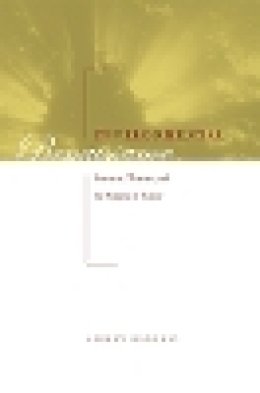
Stock image for illustration purposes only - book cover, edition or condition may vary.
Environmental Renaissance: Emerson, Thoreau, and the Systems of Nature
Andrew McMurry
FREE Delivery in Ireland
Description for Environmental Renaissance: Emerson, Thoreau, and the Systems of Nature
Hardcover. Through environmental philosophy and emerging paradigms in complex systems theory, the book presents a new reading of Emerson, Thoreau and the green tradition of American thought, analyzing their foundational roles in the formation of the two main currents in American environmentalism. Num Pages: 288 pages. BIC Classification: 1KBB; HBT; RN. Category: (P) Professional & Vocational; (U) Tertiary Education (US: College); (UP) Postgraduate, Research & Scholarly; (UU) Undergraduate. Dimension: 242 x 165 x 22. Weight in Grams: 549.
Through contemporary environmental philosophy and emerging paradigms in complex systems theory, Andrew McMurry presents a new reading of Emerson, Thoreau, and the green tradition in American thought. McMurry analyzes Emerson and Thoreau's foundational roles in the formation of the two main currents in American environmentalism: the managerial, or "shallow," and the radical, or "deep."
The author draws, in particular, on Humberto Maturana and Francisco Varela's theory of autopoesis and the social systems theory of Niklas Luhmann. These theories, says McMurry, give us the conceptual tools to update Emerson and Thoreau's philosophies of nature, literary aesthetics, and attitudes toward pastoralism ... Read morefor the current age of environmental risk and uncertainty. McMurry's systems approach helps us to recast essentialist, ultimately debilitating binaries such as nature/culture, wilderness/civilization, and wild/tame along the lines of a suppler, richer distinction: that between self-organizing systems (like language or society) and their environments (defined simply as whatever cannot communicate with the system). Such an undertaking also allows McMurry to reflect on the systemic obstacles that ecocriticism, as a genre enabling positive environmental practices, must confront if it is to be theoretically coherent.
Sophisticated and socially relevant, Environmental Renaissance is both a call for critics to broaden their parameters and a warning about rhapsodizing on nature while our very life-support systems are crumbling.
Show Less
Product Details
Publisher
University of Georgia Press
Place of Publication
Georgia, United States
Shipping Time
Usually ships in 15 to 20 working days
About Andrew McMurry
ANDREW McMURRY is an assistant professor of English language and literature at the University of Waterloo.
Reviews for Environmental Renaissance: Emerson, Thoreau, and the Systems of Nature
A lucid, vigorously argued critique of both the Emersonian and Thoreauvian strains of American environmentalist discourse, this book will reshape the debate for environmental humanities.
William Rossi
editor of 'Wild Apples' and Other Natural History Essays by Henry D. Thoreau
A major contribution (and corrective) to two fields: nineteenth-century American literary studies and an emerging ecocriticism. Indeed, ... Read moreMcMurry's reformulation of ecocritical thought is validated precisely because he is able to read Emerson and Thoreau in fresh ways, as early representatives, roughly and respectively, of reformist and deep ecological positions.
Joseph Tabbi
author of Cognitive Fictions
But what, really, does ecocriticism do? In this smart, witty, angry, and hopeful book, McMurry pursues this question through systems theory and postmodern science studies. Emerson and Thoreau, he shows, are more relevant today than ever, never more so than in their—and our—necessary blindnesses. Can ecocriticism really help us through our pending ecological reckoning? Just maybe, answers McMurry, if ecocriticism begins to worry less about nature and more about environment. Anyone who is concerned about the future of ecocriticism will find in this book provocation, inspiration, and—just maybe—a survival guide to the future.
Laura Dassow Walls
author of Emerson's Life in Science: The Culture of Truth
Both challenging and erudite, McMurry's call to arms pushes at the boundaries of environmental literature and demands a criticism that's more relevant and effectual.
Nature Pages Provocative and inspiring, this book addresses eco-critical theory, but not practice, in a sophisticated, witty, and sarcastic way.
Southeastern Naturalist Show Less

